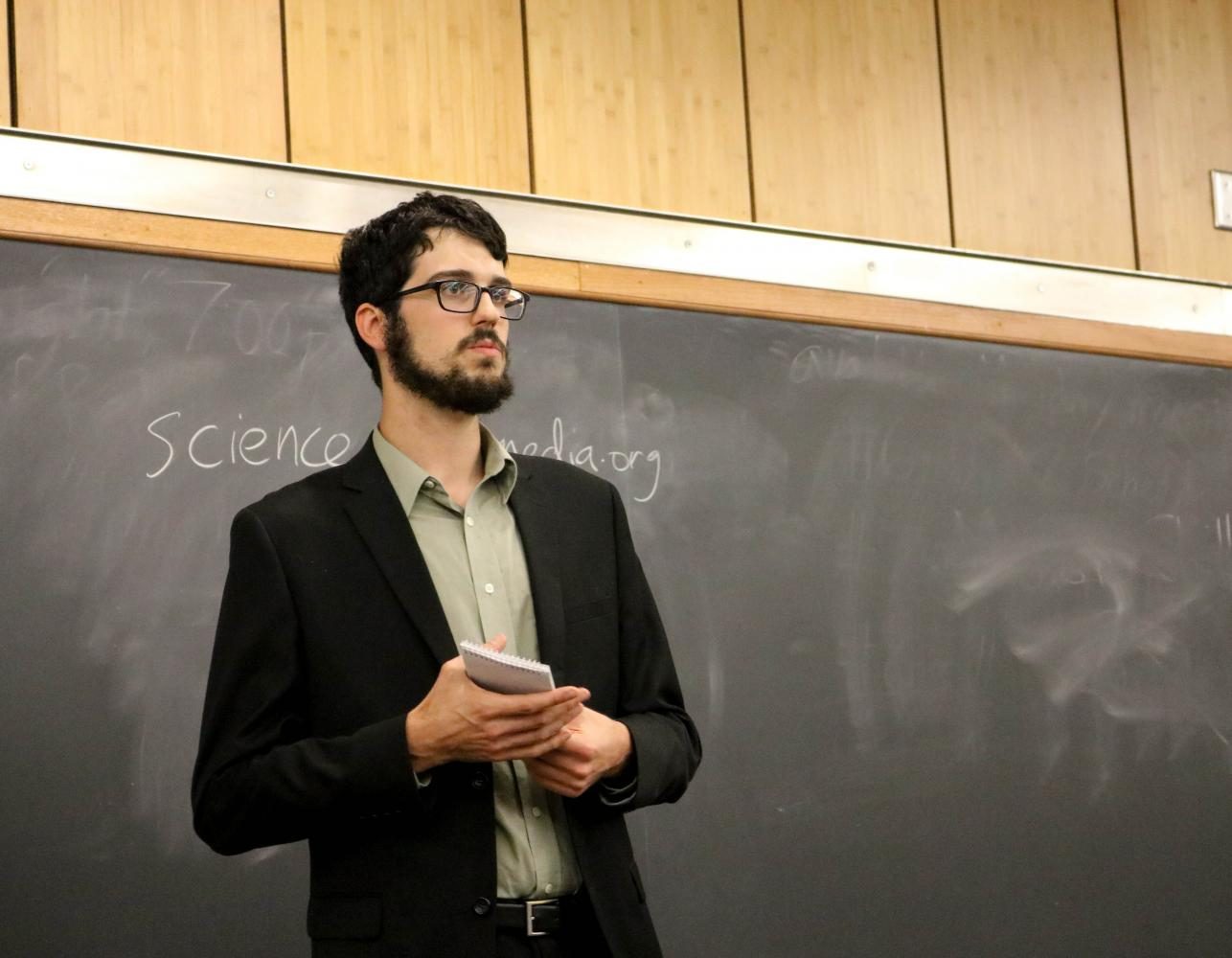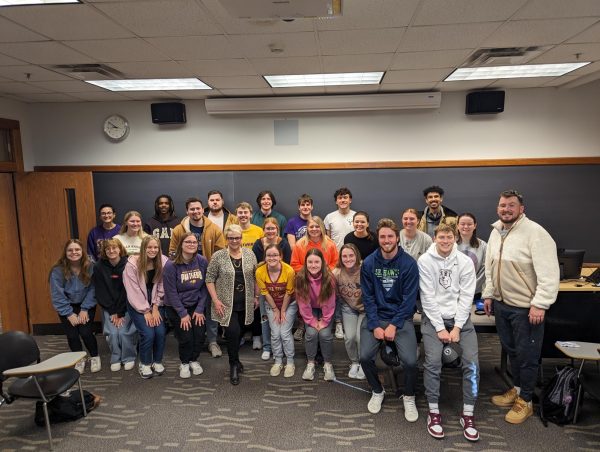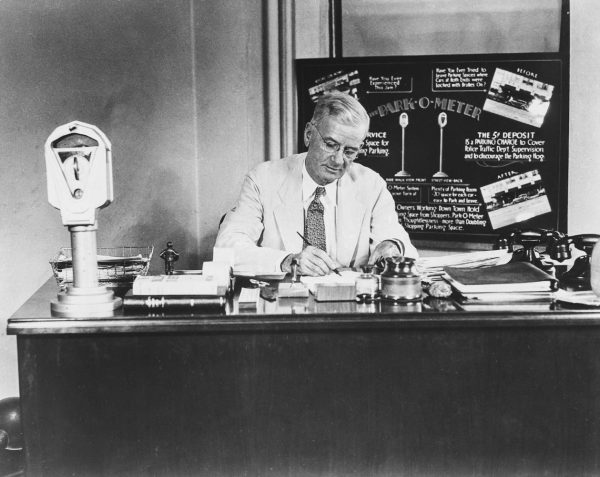The Storm Lake Times: A tale of how a small Iowa paper received a Pulitzer
Tom Cullen, a reporter whose work with The Storm Lake Times helped earn the newspaper a Pulitzer Prize, spoke at UNI last Thursday.
Sep 14, 2017
UNI alumnus Tom Cullen, a reporter for The Storm Lake Times, spoke on campus on Sept. 7 about how the small-town newspaper won the 2017 Pulitzer Prize for editorial writing.
The staff at The Storm Lake Times, which prints twice a week and has an estimated circulation of 3,300, earned the award for their reporting of a Des Moines Waterworks lawsuit related to the release of nitrogen into drinking water.
While the actual recipient of the Pulitzer was Art Cullen — Tom’s father — Tom Cullen was involved in the reporting and research to find the answers they needed.
In addition to explaining how The Storm Lake Times won the Pulitzer, Cullen wanted to share his knowledge about science and the media during Thursday’s lecture, which took place in Sabin Hall.
Cullen, age 24, began his journalism career in 2014. He graduated from UNI in 2015 after studying economics and immediately began working on the Waterworks case.
“When this all started out, it was a big lawsuit — statewide acclaim and national acclaim, even. It was covered in The New York Times and the Chicago Tribune,” Cullen said. “We knew it was big, and we also had that lens that the landscape has changed dramatically over these years. It was our idea to cover this as much as we could.”
However, that process soon became complicated. Cullen and other staff members at The Storm Lake Times ran into numerous obstacles during their research on the waterworks issue. According to Cullen, the county attorney was not hired to defend the counties when they were sued. It is still unknown as to why a county attorney was not hired. Instead, nearly a dozen drainage attorneys were hired, according to Cullen.
“We were just basically banging our heads to figure out how they [are] paying these lawyers? How are they doing this? Who’s paying for it?” Cullen said. “Whatever new information we could get — and believe me it was sparse — we would run it because we were aware of how big it was.”
Cullen stressed that it is important to stay dedicated when looking through records and doing research on a big issue like the Waterworks case.
Cullen said that he tries to use a step-by-step approach when dealing with scientific research and the media. According to Cullen, as long as he can understand what he has written about, then the reader should be able to understand it too.
As for the Pulitzer win, it’s an award of national significance. As a result, Cullen now deals with higher expectations.
“It’s an honor that I still can’t even fathom,” Cullen said. “Going day to day now, it ramps up the pressure a little bit.”
Drake Eserhaut, a junior movement and exercise science major, was one of the many UNI students who attended Thursday’s lecture.
“[Cullen] described how independent journalism is suppressed by big corporations and companies that would be hindered by the facts of the reporting on a local scale,” Eserhaut said. “It was nice to see someone who is working that hard to present his findings.”
Alik Lorenz, a junior computer science major, was also in attendance at the lecture. Lorenz said that he was surprised that a prestigious award like the Pulitzer Prize was awarded to such a small-town newspaper.
“I had personally never heard about it,” Lorenz said. “It’s a big deal.”
As for journalism, both students agree that it is still an important aspect of today’s society.
“For somebody like Tom Cullen and those kinds of people, it’s really good to have someone reporting the facts of the people and what the people are feeling, rather than just a major news corporation,” Esherhaut said. “The [Storm Lake Times] is actually involved with the local community and hunts down [the] kinds of issues that are arising and how they can go about fixing things.”
“It’s probably hard to do nowadays, especially with technology and especially with independent journalism,” Lorenz said. “I give Tom Cullen credit for doing such a big thing.”
Although both students are not majoring in journalism, both said that they appreciated Tom Cullen’s lecture on science and the media. Cullen also mentioned that The Storm Lake Times has gained numerous new subscribers across the country thanks to his and his father’s efforts.
Even after gaining such nationwide recognition, Cullen said he continues to follow the Waterworks story closely, with hopes of exposing the truth to the public.
Finally, in addition to his own experience as a journalist, Cullen addressed the current state of journalism in the US and the mistrust that the public still has for the media.
“You always have to have this idea in your head that you’re just a reflection of what’s going on,” Cullen said. “Just tell the truth and let the chips fall.”
















